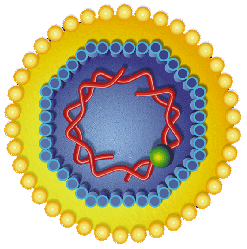Hepatitis B is a viral infection of the liver that is spread when contact is made with blood or blood products from an infected individual.
The symptoms of this condition include:
- Nausea and vomiting
- Fatigue
- Loss of appetite
- General aches and pains
- Headaches
- Symptoms of jaundice (yellowing of the skin and eyes)
People do not know they ate infected with Hepatitis A at first because symptoms take between 40 and 160 days to develop (incubation period). Some individuals do not develop any symptoms at all.

Spread of the infection
Hepatitis B can be transmitted through contact with blood and bodily fluids and the following can therefore lead to infection:
- Blood transfusion with contaminated blood
- Unprotected sex, including anal and oral sex
- Sharing of infected needles between drug users
- During birth, from an infected mother to the baby
Diagnosis and treatment of hepatitis B
Hepatitis B is diagnosed using a blood test that detects antibodies the body has produced against the virus. Liver function tests are performed to check how well the liver is working and an ultrasound scan may be performed to look at the liver.
There is currently no specific treatment for acute hepatitis B and treatment is aimed at making the patient as comfortable as possible until the infection resolves. Patients can take painkillers to relieve any symptoms of pain. Chronic hepatitis B is treated using antiviral medications that slow production of the virus and minimize damage to the liver.
Prevention of the infection is achieved by vaccinating against the infection. Vaccination is recommended for people in high-risk groups.

Sources
- http://www.nhs.uk/conditions/hepatitis-b/pages/introduction.aspx
- www.who.int/csr/disease/hepatitis/HepatitisB_whocdscsrlyo2002_2.pdf
- http://www.nlm.nih.gov/medlineplus/tutorials/hepatitisb/id459103.pdf
- http://www.easl.eu/assets/application/files/ef520780b91cf4f_file.pdf
- http://www.cdc.gov/hepatitis/hbv/pdfs/hepbgeneralfactsheet.pdf
- http://www.cdc.gov/vaccines/hcp/vis/vis-statements/hep-b.pdf

0Comments